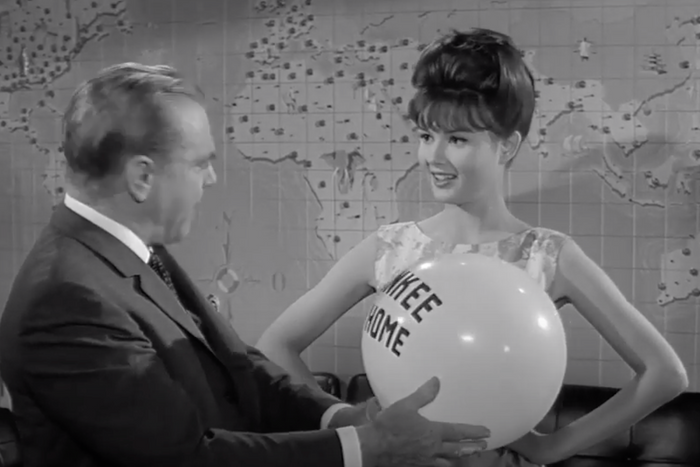
The actress Pamela Tiffin died on Wednesday, in Manhattan, at 78. And although she never quite became a household name, she had what it takes and came pretty close, and her career is worth remembering. She first got noticed in the 1961 film adaptation of the Tennessee Williams play Summer and Smoke, and broke out that same year as the co-star of the underappreciated, great Billy Wilder movie One, Two, Three. There she held her own as the daffy yet headstrong southern-belle daughter of a Coca-Cola executive, one who describes everything she likes as “Marvy!” (James Cagney, as the local Coke division manager in Berlin, is tasked with reining her in while she’s on a European jaunt. Excellent mayhem ensues.) Wilder called her the best thing since Audrey Hepburn.
Tiffin followed that with a starring role in a remake of State Fair and TV gig on The Fugitive. But she reportedly grew weary of the grinding wheels of the movie business, and in 1967 moved to Italy for a while, performing in films there, before returning to New York in semiretirement.
We at New York Magazine also have our own, unexpected connection to her: In 1962, just as her career got hot, she married the journalist Clay Felker. Right around then, he took over and revitalized the Sunday magazine of the New York Herald Tribune, called New York. After the paper shut down, the Felkers’ (drop-dead-envy-inducing, made-for-entertaining) apartment on 57th Street became a place where groups of his colleagues met to figure out how to keep that Sunday supplement going on its own. The magazine you’re reading now in digital form was, to a certain extent, invented in front of Clay and Pamela’s fireplace.
By the time Felker relaunched New York on its own in 1968, she was in Italy, he was the hottest editor in town, and the two of them broke up soon after. Each remarried, successfully and for the long term: she to the Italian philosopher Edmondo Danon, he to his longtime colleague Gail Sheehy (who herself died in August). Pamela Tiffin remains a meaningful part of our institutional history, and we send condolences to her husband and to their daughters, Aurora and Echo. She was marvy.


